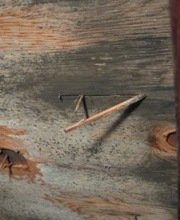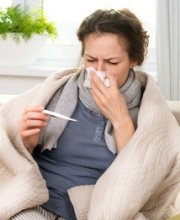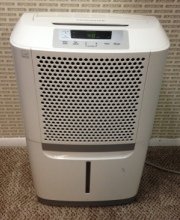Find a Mold Specialist Now
Click or Call, Toll-Free 24/7
black mold sickness
Black mold sickness is a name sometimes given to a variety of symptoms by exposure to black toxic mold, technically known as stachybotrys chartarum. Stachybotrys chartarum is frequently referred to as black mold because it has a characteristic slimy black or greenish-black appearance. It is also sometimes referred to as toxic mold or toxic black mold because it produces toxic chemicals called mycotoxins. The mold spores can cause respiratory problems when inhaled and exposure to the mycotoxins produced by stachybotrys chartarum is believed to cause or contribute to a number of health problems, some of them relatively minor and some of them quite serious.
We’ll tell you about the common symptoms of black mold-related illness, how it is diagnosed and how it is treated. We’ll also tell you how to get help removing toxic mold from your home.
Common Symptoms of Black Mold Sickness
Symptoms of mold-related illness vary widely from person to person and may include:
- Coughing
- Nasal congestion
- Sneezing
- Wheezing
- Snoring
- Dyspnea (difficulty breathing)
- Asthma
- Sinusitis
- Bronchitis (infection of the air passages leading to the lungs, called bronchi)
- Pneumonia
- Pulmonary hemorrhage (bleeding in the lungs)
- Headaches
- Migraines
- Sore throats
- Ear infections
- Conjunctivitis (pink eye)
- Allergic reactions
- Itching
- Rash or hives
- Joint pain
- Depression
- Fatigue
Some people experience severe symptoms while others have only minor symptoms.
Diagnosing Black Mold Sickness
As you might imagine, with such a wide range of symptoms, it can be difficult to determine if the illness is caused by black mold or by something else. After all, most or all of these symptoms can be caused by things other than black mold. Pneumonia, for instance, can be caused by viruses or bacteria, migraines can be caused by food sensitivities or stress, and so on. To help ensure you get an accurate diagnosis, make a list of all your symptoms and when they began. Take your list with you to your doctor.

Let your doctor know if you’ve been exposed to mold and, to the best of your knowledge, when that exposure began. If you know what kind of mold you’ve been exposed to, tell your doctor. If you haven’t had the mold tested to see if it is black toxic mold or some other strain of mold, ask your doctor if that information will assist in making a diagnosis and if he or she recommends having the mold tested. You can read more about testing for black mold here.
Depending on your specific symptoms and medical history, your doctor may order some diagnostic tests, such as blood tests, a throat culture, a culture of a sputum sample, a chest x-ray, and a bronchoscopy, a test where a doctor uses a tiny camera to look inside your airways.
Treating Black Mold Sickness
The appropriate treatment will depend on your symptoms and the results of any diagnostic tests. Treatment may include oral or intravenous antibiotics, antihistamines, analgesics (for fever and pain), and breathing treatments. Most people can be treated for mold-related illness on an outpatient basis but in severe cases, hospitalization may be required. Depending on your condition, your primary care physician may need to refer you to a specialist such as an infectious disease specialist, an allergist, a pulmonologist (a lung specialist) or an otolaryngologist (an ear, nose and throat doctor, sometimes called an ENT).
Symptoms usually resolve with treatment, as long as you are no longer exposed to mold, but sometimes mold-related health issues become chronic.
Mold Removal
Medical treatment for mold-related illness is unlikely to be effective if you continue to be exposed to mold. You’ll need to have the mold thoroughly removed from your home.
The U.S. Environmental Protection Agency recommends consulting your physician before attempting to remove mold yourself if you have mold-related health problems or other illnesses that might be exacerbated by contact with mold. Your physician may recommend hiring a mold removal professional instead. Your physician may also recommend you not return to your home until the mold has been removed.
For Help with Mold Removal
If you need assistance with mold removal, Environmental Protection Agency recommends engaging mold remediation professionals that comply with the guidelines established by the American Conference of Governmental Industrial Hygienists. Many offer free consultations and home inspections, so you can benefit from some expert advice whether or not you opt to handle the mold removal yourself. Follow this link to find qualified mold remediation professionals offering free consultations in your area.
Return From Black Mold Sickness To Our Main Black Mold Health Page




